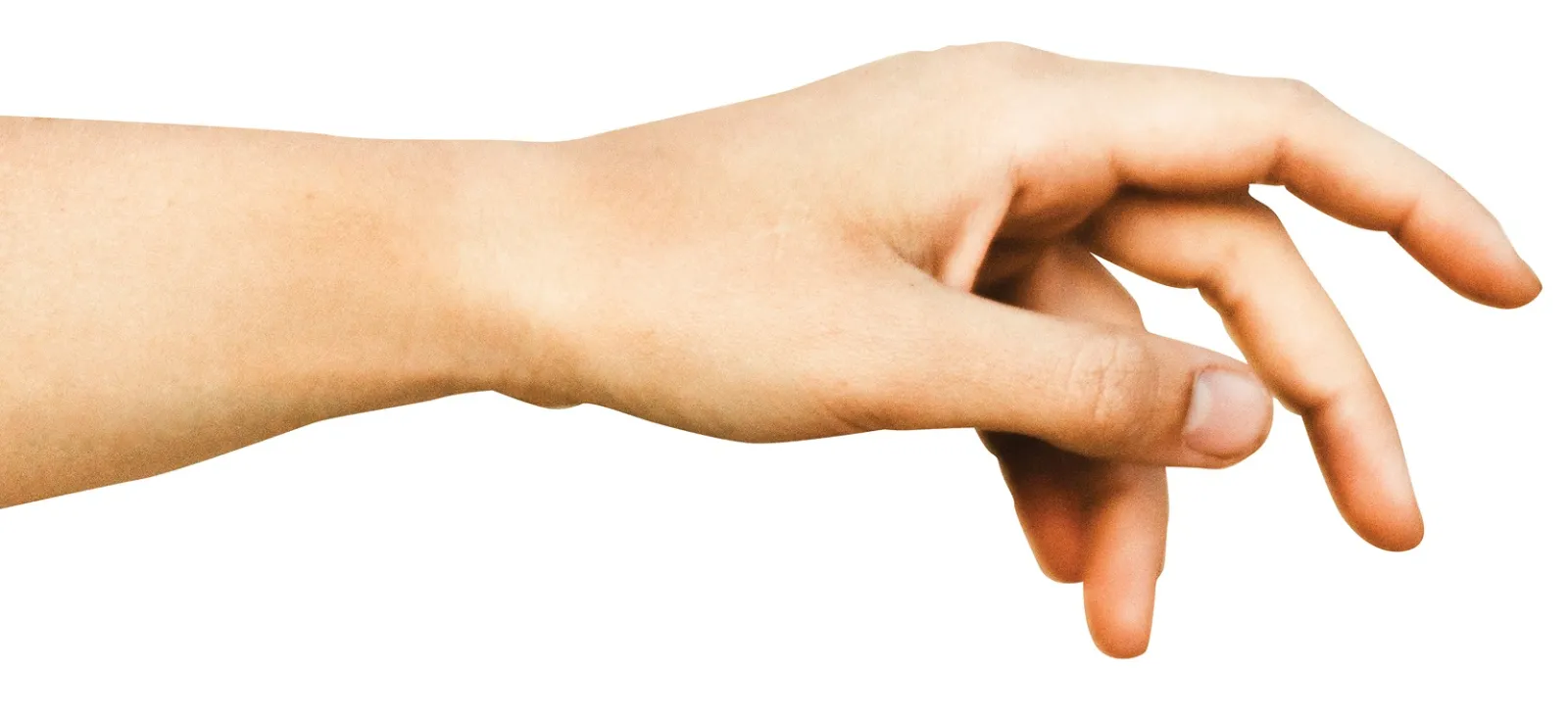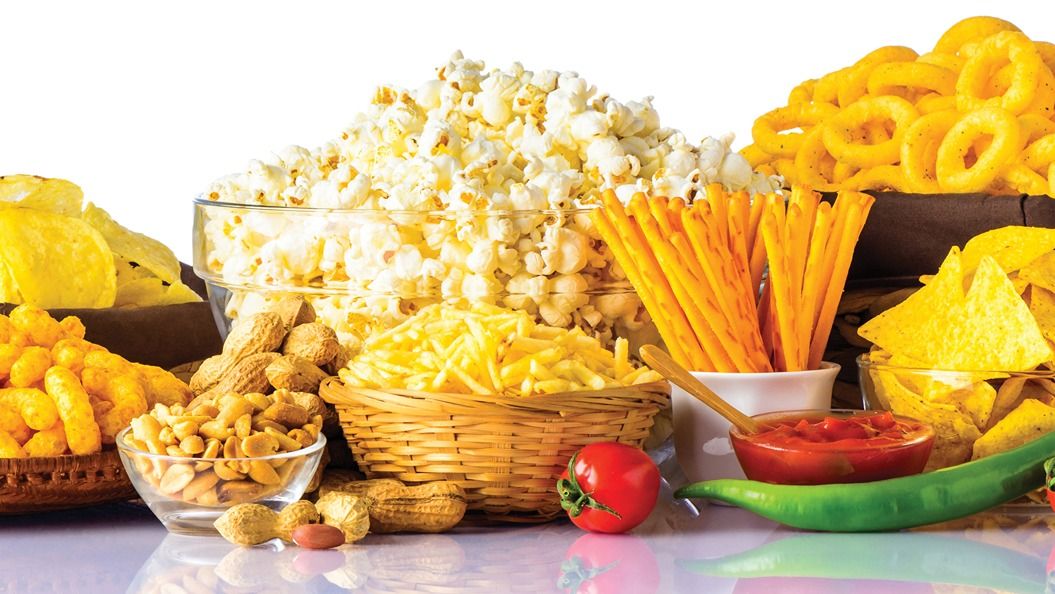It is estimated that the average adult makes an eye-popping 35,000 decisions per day and roughly 200 decisions about food per day.

Chances are, you probably will only recall a fraction of them, particularly when it comes to your food intake.
Because you may be working, driving, reading, watching television, or scrolling through your Smartphone, you may not be fully aware of what you're eating. This lack of awareness of your food consumption may lead to mindless snacking.
"Mindless snacking," said Molly Kimball, RD, CSSD, local registered dietician with Ochsner Health and Founder of Ochsner Eat Fit, "is eating while serving another purpose or while doing another activity. It tends to be a carbohydrate and driven by something other than hunger or to fuel your body."
Kimball explained that many people snack unintentionally when they are stressed, angry, happy, sad, depressed, or otherwise preoccupied. "Mindless snacking may be used as a tool to unwind or decompress," said Kimball. "It is that hand-to-mouth distraction and action of eating that can leave you with a feeling of release and self-soothing."
Lynn Rossy, Ph.D. from the Center for Mindful Eating, would agree. "We often snack without being conscious of snacking—namely because we are doing something else or thinking about something else. Snacking is prevalent because food is almost always within arm's reach, and it is very easy to reach for food for comfort, distraction, and to fill up an empty moment."
Rossy, who also teaches a ten-week Eat for Life class, beginning in September, recommended checking in with your belly before you put food in your mouth to determine if you are physically hungry.
"It can be challenging to distinguish between emotions that are experienced in the body and true physical hunger," said Rossy. "Stress, for instance, is often registered in the belly which is where we first experience physical hunger. Mindfulness is truly one of the most beautiful practices for learning how to accept that all emotions can be welcomed and experienced without needing to do anything to fix them, like eating."
Oftentimes, Kimball affirmed that mindless snacking is defined as emotionally-driven; however, it can also be connected to a sense of guilt and regret. For example, Kimball said that a person may be watching TV while eating chips out of a bag, and, before you know it, half the bag is gone. "If someone sets an intention for the day, and at the end of the day in hindsight, they are disappointed and feeling guilty. This is your first clue of mindless snacking."
Although eating in between meals may seem like an indulgence, healthy snacks can also be an important part of your diet. They can increase your energy during the day, prevent overeating and help you maintain your weight. Kimball advised that snacking can be a good idea, but you may want to figure out why you are snacking. So, how do you crack your snack habit?

Kimball suggested four strategies to combat mindless snacking:
1.) Analyze and ask questions: Take a moment before you begin to eat your snack and figure out what thoughts or emotions prompted you to snack.
This is a perfect practice to start eating mindfully. While snacking, always ask yourself why you need this snack? Are you actually hungry? Do you need an energy kick or are you simply eating because you are bored? These questions invite you to recognize the difference between mindful and mindless snacking. Mindful snacking is eating with attention and intention.
2.) Identify the time of day that you tend to succumb to snacking mindlessly.
"It is important to identify the witching hours, when this period of snacking occurs," Kimball emphasized. "Sometimes, people tend to snack unconsciously at night, or when they get home from work to turn down the noise from the day. It is less likely to happen at 7:00 a.m. because people tend to be busy in the morning. It is usually in the second half of the day when you are reacting to the stressors of the day."
3.) Another question to ask yourself is where does this mindless snacking occur—perhaps at your desk or on your couch?
You may eat while you are on the phone or watching television. When you are eating and doing something else, you may tend to overeat, or not chew your food completely. Kimball noted the best strategy to counter overeating was to set parameters for your snacks. "Take a bag of chips and don't eat out of the bag," Kimball advised. "Put a handful on a napkin and then put away the bag. Give yourself permission to have this treat. You can set yourself up for success by managing the amount of your snack."
4.) Choose foods that are nourishing and make you feel full longer.
"You're less likely to over-consume when you eat one or all of the following components: protein, fiber and plant-based fats," said Kimball. "If your snack is carb-based, put a protein, fiber, and some fat to round it out to be physically and emotionally satisfying." For example, if you're eating crackers for a snack, Kimball recommended pairing it with nut butter, guacamole, or hummus for a good healthy option.
Mindless snacking does not involve a plate, stressed Kimball. "Identifying the snack and giving it the title of a snack is important. When you're eating, it should be a conscious act—something you enjoy and get pleasure from."

Here are simple ways to curb the mindless snacking:
● Snack on smaller portions by buying individual-sized packaged foods
● Drink plenty of water between meals
● Keep the tempting foods out of your reach and healthy food choices within reach
● Eliminate convenience and choose snacks that require preparation, a plate, or a bowl.
● Slow down and take your time while eating
● Unplug yourself from all devices when snacking
The best way to prevent mindless snacking is to check in with yourself before you eat the snack. Rossy explained that with more mindfulness, you will be conscious of what you are doing and eating. "So, when you reach for food, you will have the state of mind to stop and assess whether food is really what you want or whether you are just engaging in a habit," said Rossy. "With practice, you will become more conscious in your choices." Over time, you will become more aware of your body's needs and be able to establish mindful snacking habits.

